- Reyno Gourmet
- Navarra Food
Quality Labels
Collective trademark
Other unique foods
- Recipes
- Trade Shows
Other unique foods are those agri-food products from Navarra belonging to varieties and breeds of great value to agricultural heritage which are in danger of disappearing.
Although their image is not regulated or protected by any form of guarantee, they are products with a long tradition in the region and, therefore, due to their specific characteristics, deserve differentiation.
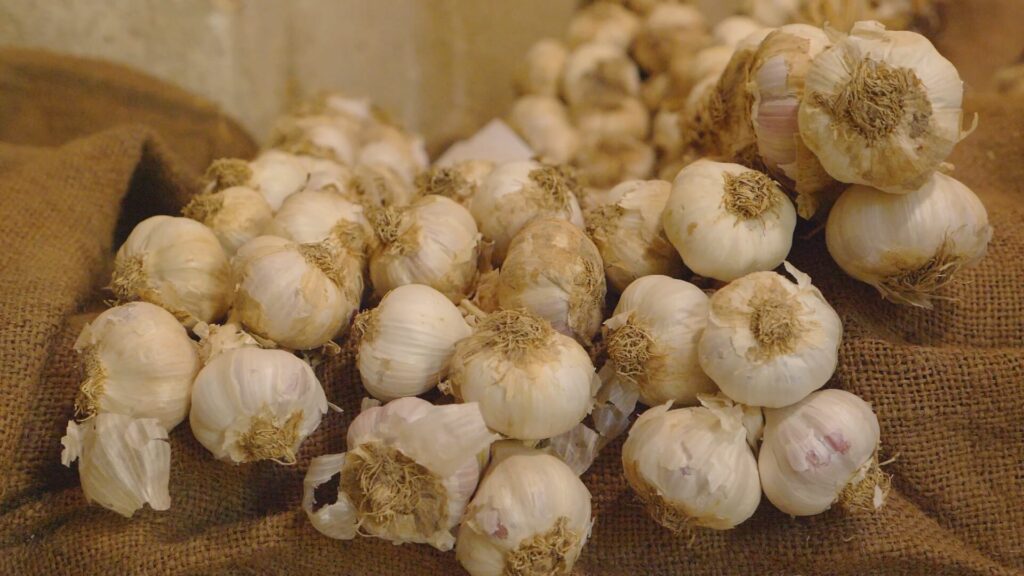

Garlic from Falces is a very laborious crop, which is cultivated by hand. It is characterised by being a high quality, concentrated garlic, which gives a great flavour to food and keeps well. It is sold in braided strings and has been produced and marketed by the people of Falces since the 17th century.
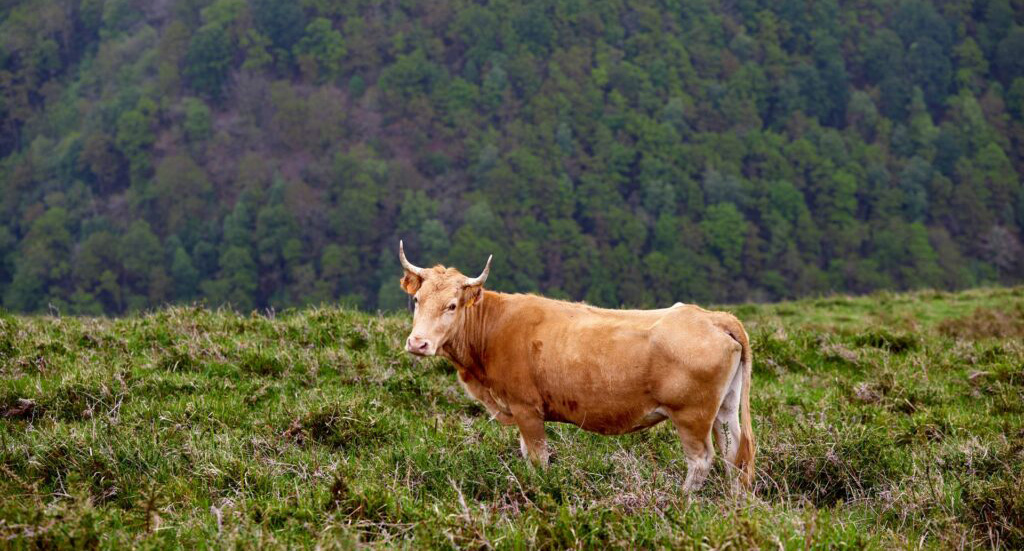

Betizu is one of the most unique European breeds of cattle, both genetically and as a feral population. Its name in Basque means ‘elusive cow’, in reference to its behaviour. It is a breed at risk of abandonment which mainly lives in the north of Navarra. The herds of Betizu live in freedom and are managed according to an extensive farming system, making great use of pastures and other natural resources. Its meat is sold with the label Betizu 100% autóctona.
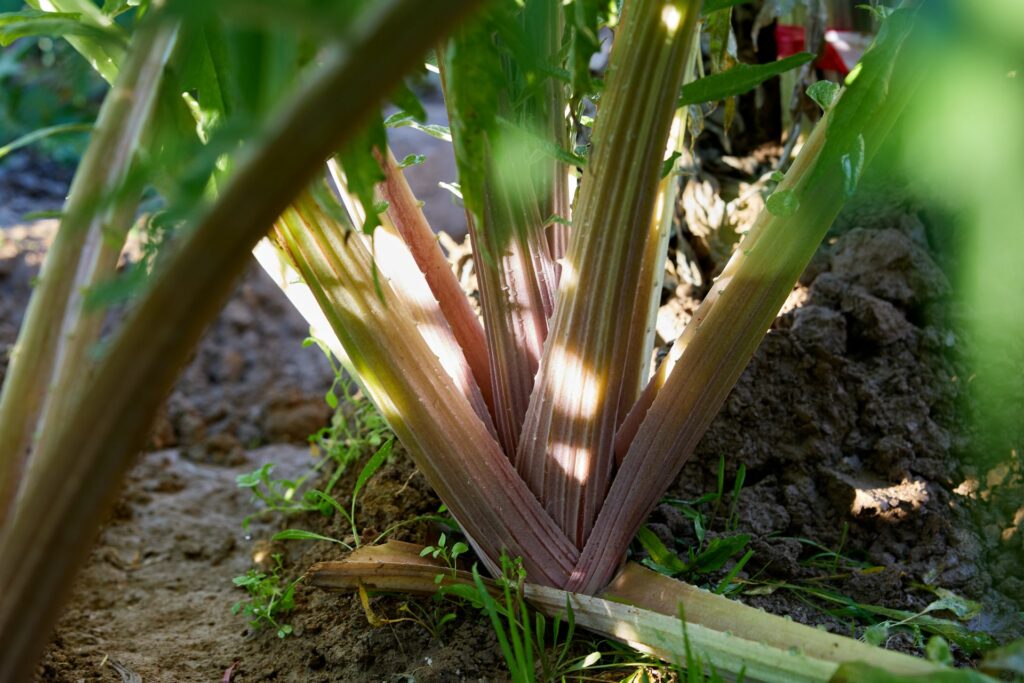

This variety is only grown on the floodplains of the Alhama River in Navarra’s Ribera Baja region. The chief peculiarity of the farming process used is that the cardoon is covered with soil for 40 days.
This means that the cardoon takes the nutrients from the soil and the stalks ripen inside, giving it the flavour and colouring characteristic of the Corella red cardoon.
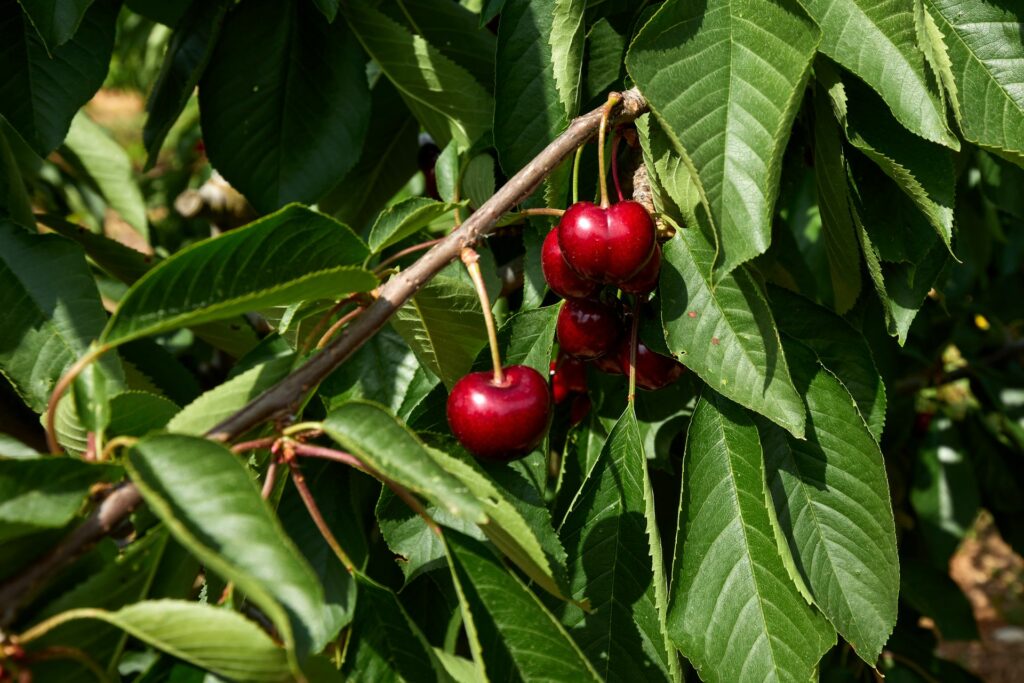

Cherries have traditionally been grown in Milagro and Etxauri, both places especially suitable for production of the fruit. This has led to a historical association between the two localities and cherries. In Etxauri, they are grown as a dry crop and in Milagro as an irrigated crop, giving rise to two distinct, characteristic and recognised types of cherries.
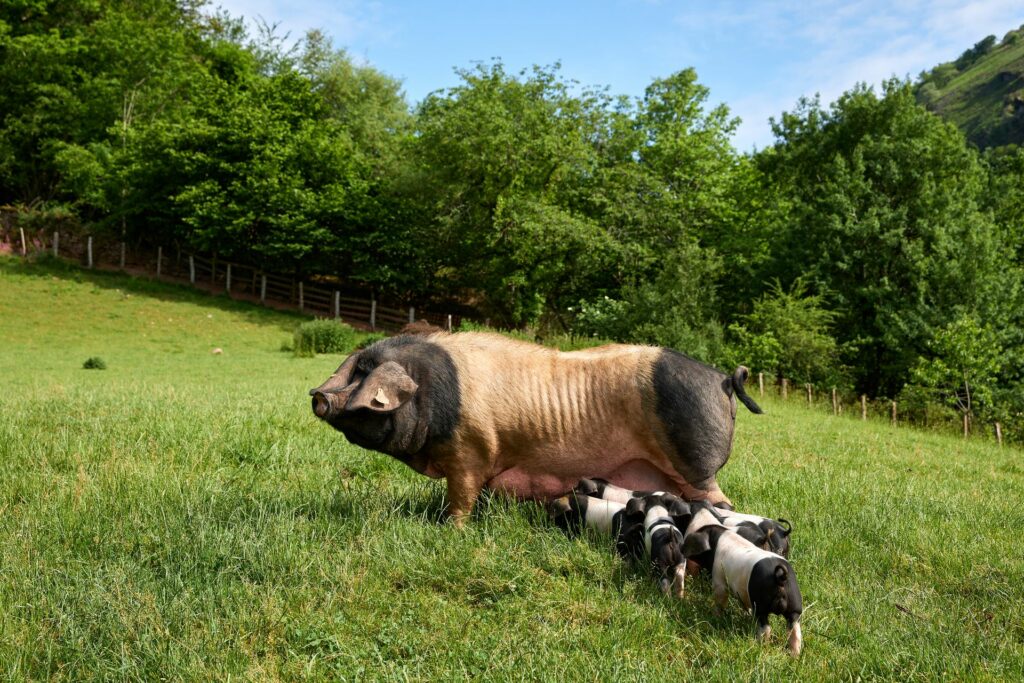

The Euskal Txerri or Pío Negro is a hardy, indigenous pig adapted to the climatic conditions of the Pyrenean area. It is raised on small family farms and in the open, among meadows, hazelnut, chestnut, oak, holly and beech. Euskal Txerri meat, ham and sausages are products of high organoleptic quality and have a distinct flavour. Recipes made with this delicious product are highly valued by restaurants and lovers of good food.
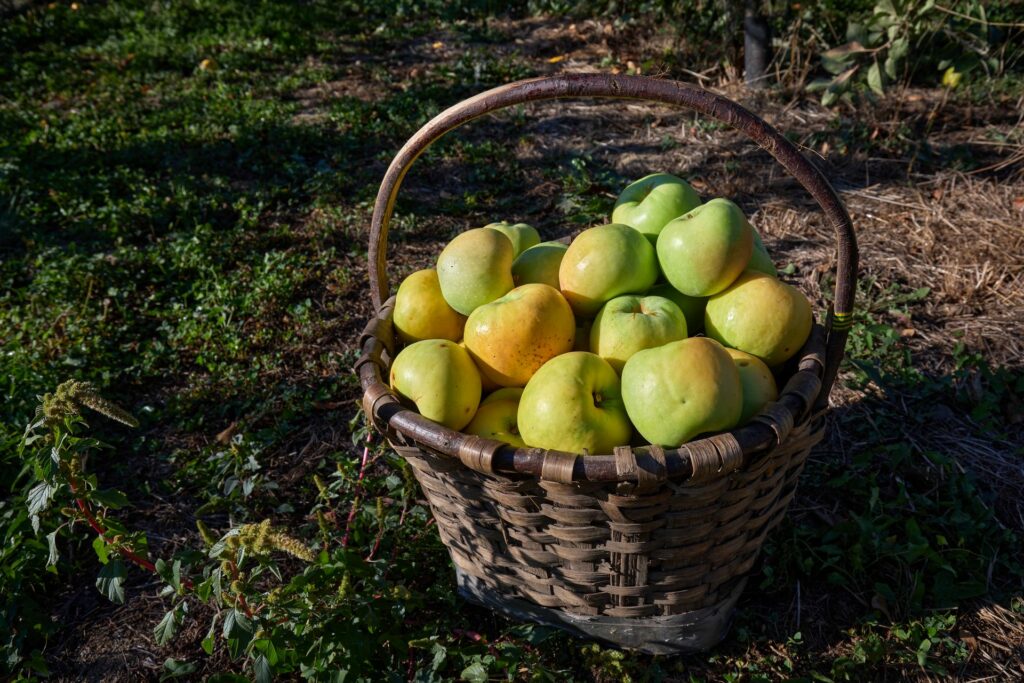
The apple tree is a species with deep roots in Navarra, forming part of the landscape, the way of life and the diet of the local population since time immemorial, and hundreds of local varieties, some of which are still cultivated today, are part of our regional heritage.
The cultivation of apple trees is of great importance for the production of cider apples in Navarra, which has a cider culture of great importance both gastronomically and for tourism.
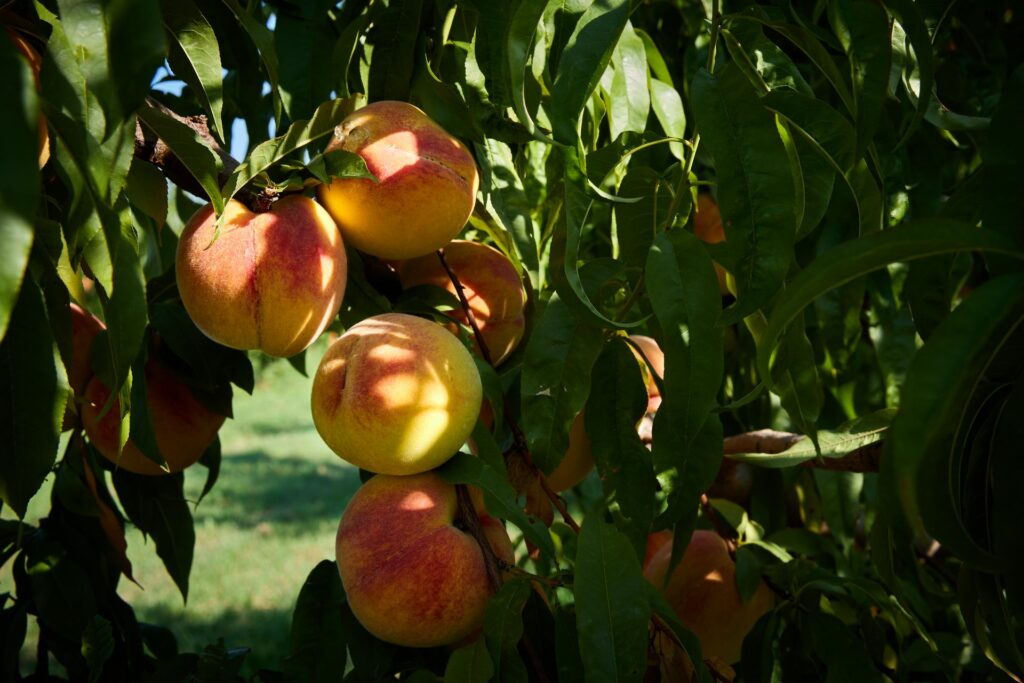

The Sartaguda peach, grown as a traditional irrigated crop, is obtained from different varieties and is a product of great quality in terms of flavour, aroma and its typical colour. Of the different varieties which fall into the classification, the oldest one, Gallur, a very tasty, highly aromatic, smaller peach, is particularly noteworthy. They are grown in small orchards and harvested by hand to keep their organoleptic qualities intact.
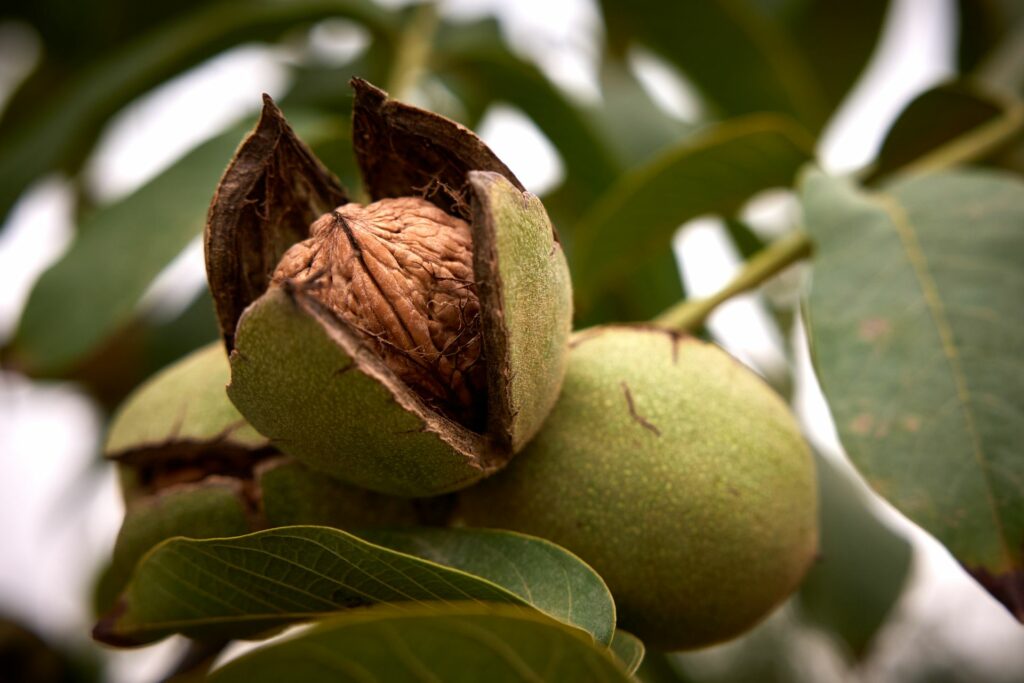

There is a small and growing production of walnuts in Navarre. These are small local productions, practically all of which are marketed locally through direct sales, on the farm itself, at fairs and markets, and in local shops. The Collective Brand “Nuez de Navarra” identifies walnuts of the species Juglans Regia L, its hybrids and varieties grown on dry and irrigated land, packed and packaged in the Autonomous Community of Navarre.
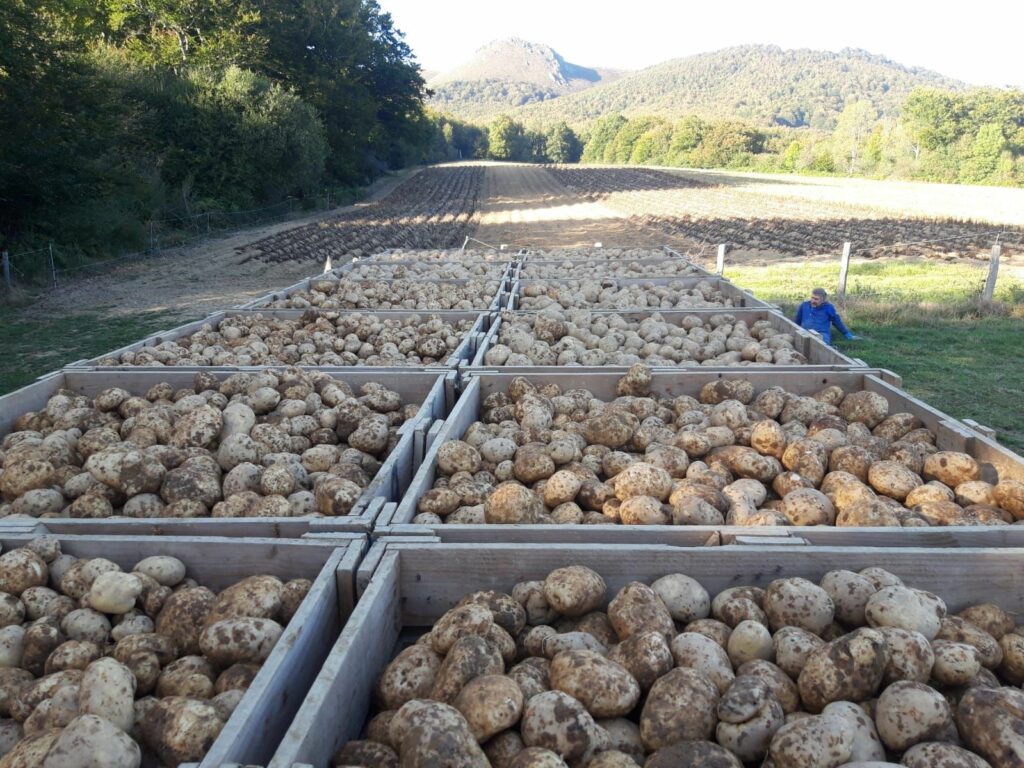
Cultivation of this tuber has been of great importance historically in Navarra’s Pyrenean valleys of Aezkoa and Salazar, where traditional varieties are grown in soils with a high amount of organic matter as dry, high-altitude crops, giving rise to crops with an intense and highly appreciated flavour.
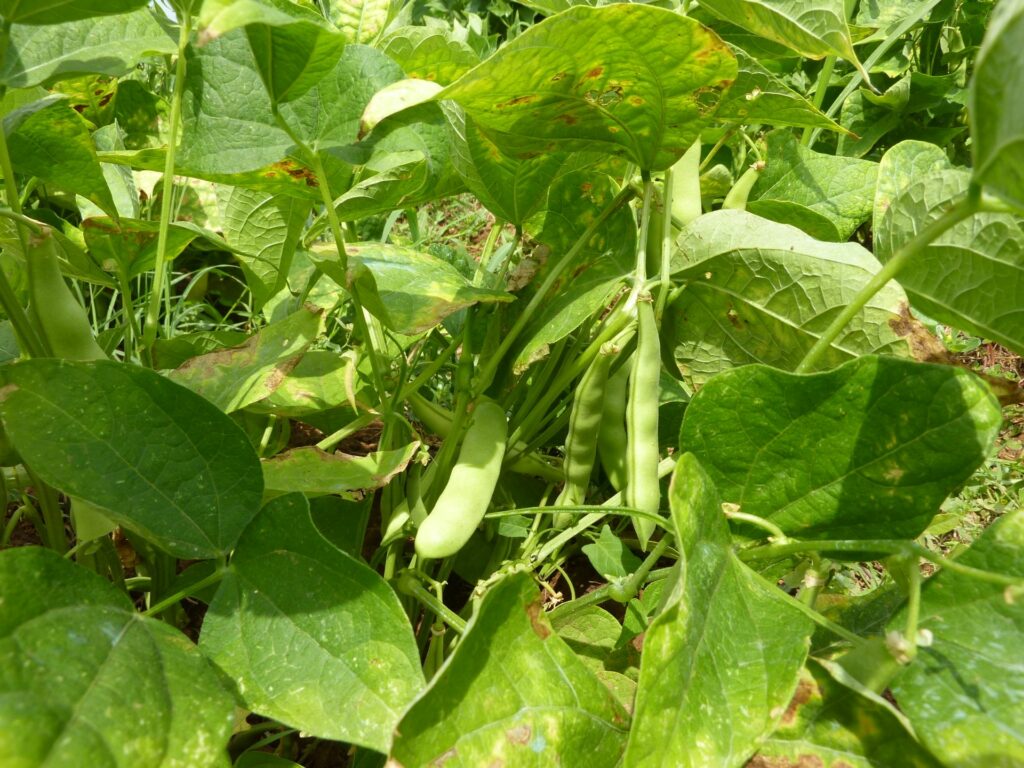
The pocha is a variety of white bean which is consumed fresh, without going through any kind of drying process (for this reason it is considered a legume, not a pulse). Pocha beans are harvested before they are fully ripe.
They are a very common sight in homes in Navarra and have been grown historically in the town of Sangüesa, from which this variety takes its name.
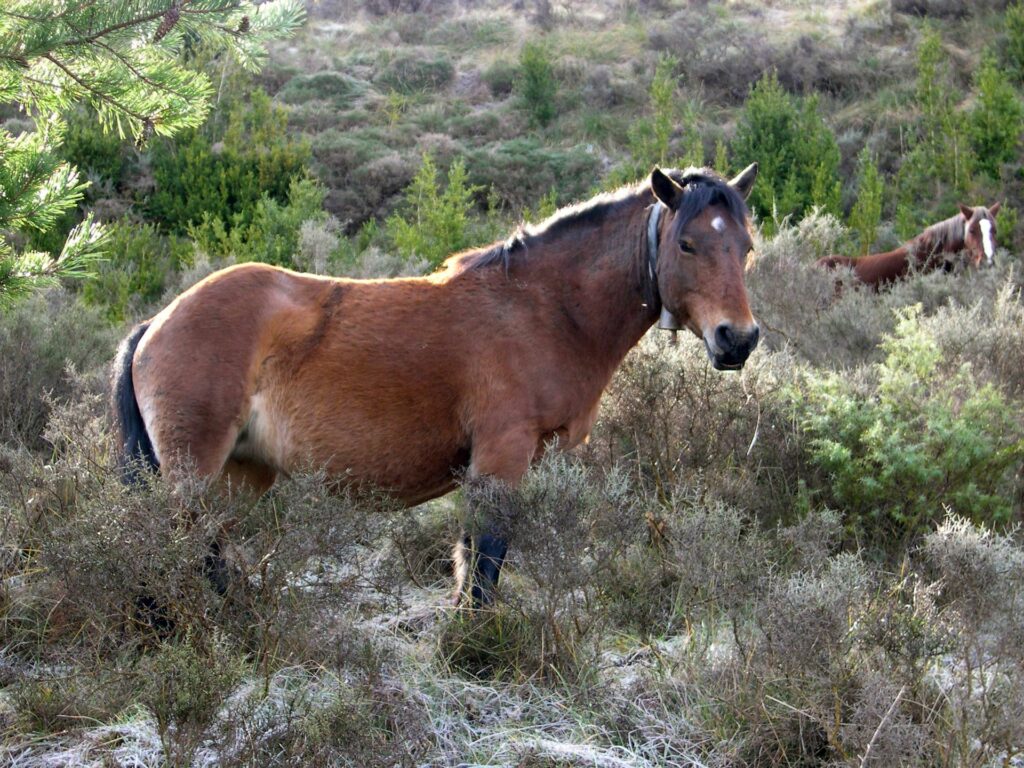

The Jaca Navarra is a breed of horse adapted to mountain areas. It is strong and vigorous. It can mainly be found in the northwest of Navarra and at INTIA’s Sabaiza farm. It produces tender, nutritious meat with sweet notes that stands out for its low fat and high iron content. It is farmed extensively and the herds live outdoors all year round.
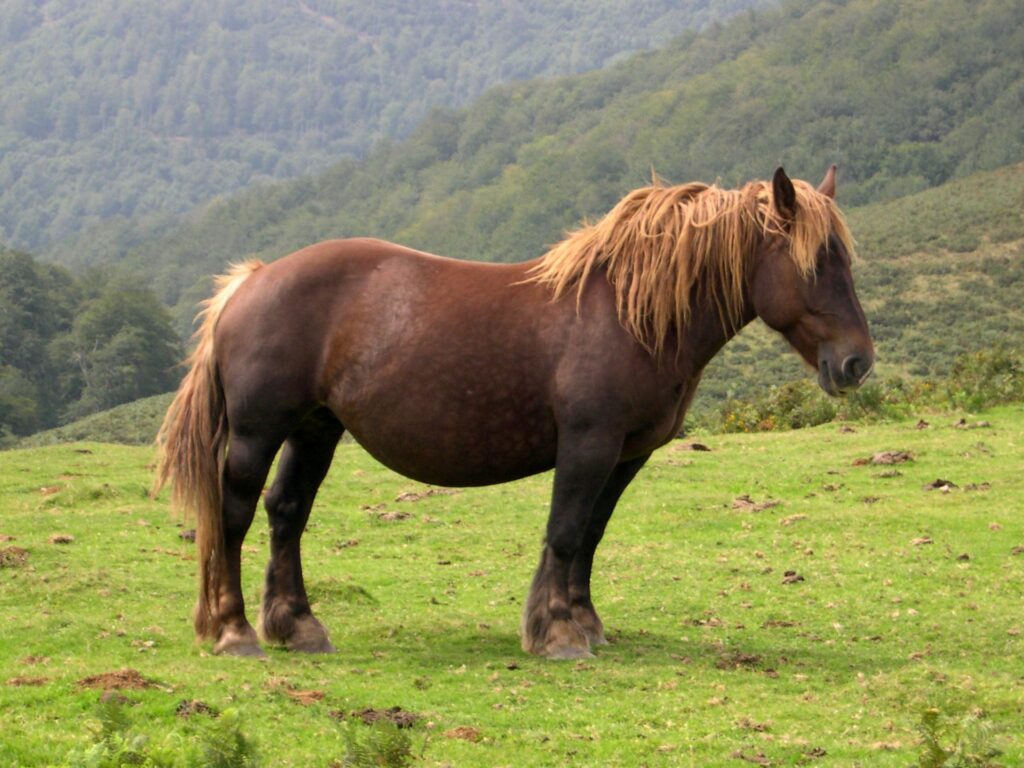

The Burguete is a horse native to the northwest of Navarra which has enjoyed great prestige as a working animal and is now raised more for meat. It came from crossing Jaca Navarra mares with French stallions, such as the Trait Breton. The horses are raised in semi-freedom, making the most of mountain pastures and meadows, and only in exceptional cases, especially when it snows, are they brought into stables.
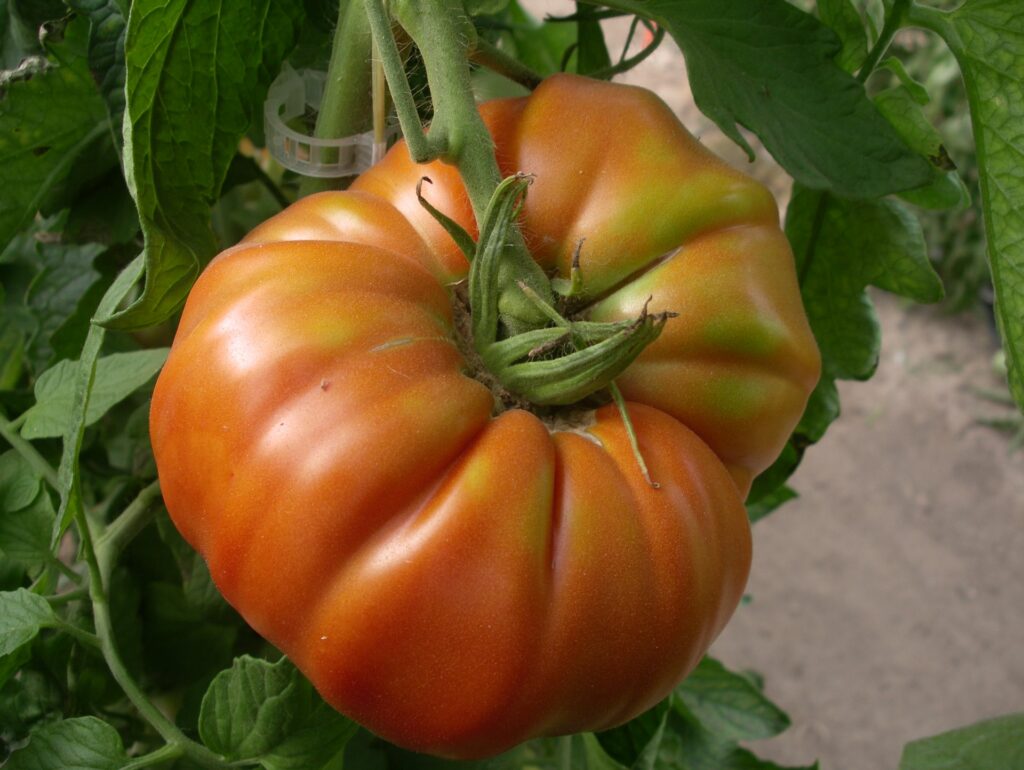
There is a wide range of heirloom tomatoes in Navarra. At present, most of these tomatoes are types of pink tomato which are very fleshy and tasty, and are known by the names of Rosa, Tudela ugly tomato, Baztán, Narbarte, Kilo, Black Krim, Morado Tardío…
In addition to their gastronomic value, heirloom varieties are of great importance for the promotion and maintenance of our cultivated biodiversity.
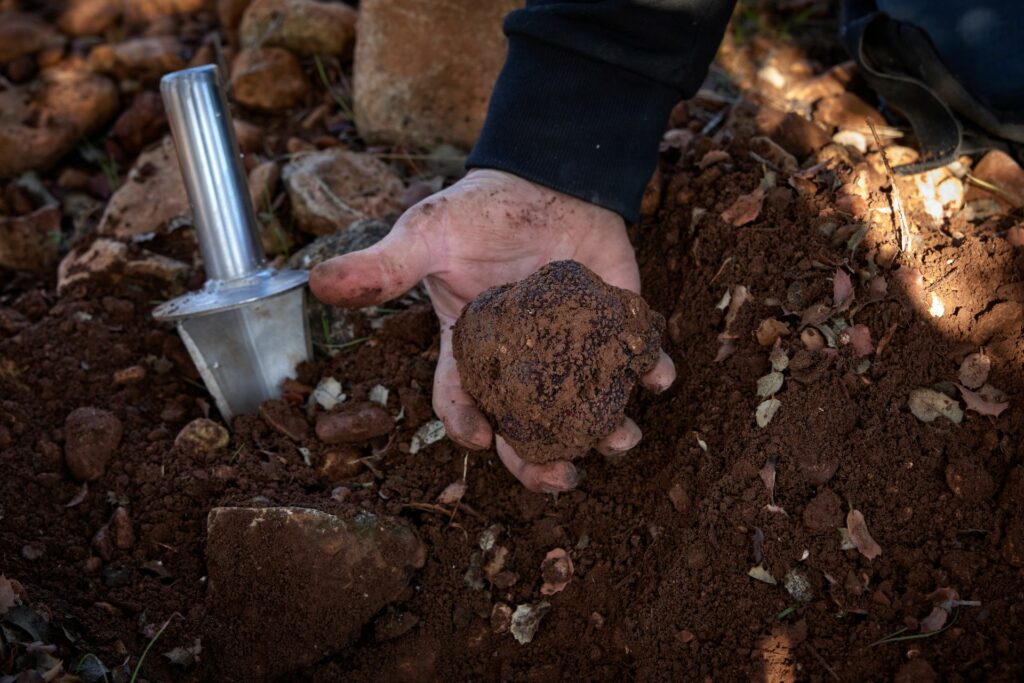
The black truffle grew in the wild in the past until it practically became extinct. But for more than three decades now, there have been plantations of mycorrhized trees, popularly known as truferas, in the Tierra Estella and Valdorba areas to farm black truffles.
The black truffle is a fungus whose scientific name is Tuber melanosporum and is highly appreciated in the kitchen for its aroma and gastronomic value.
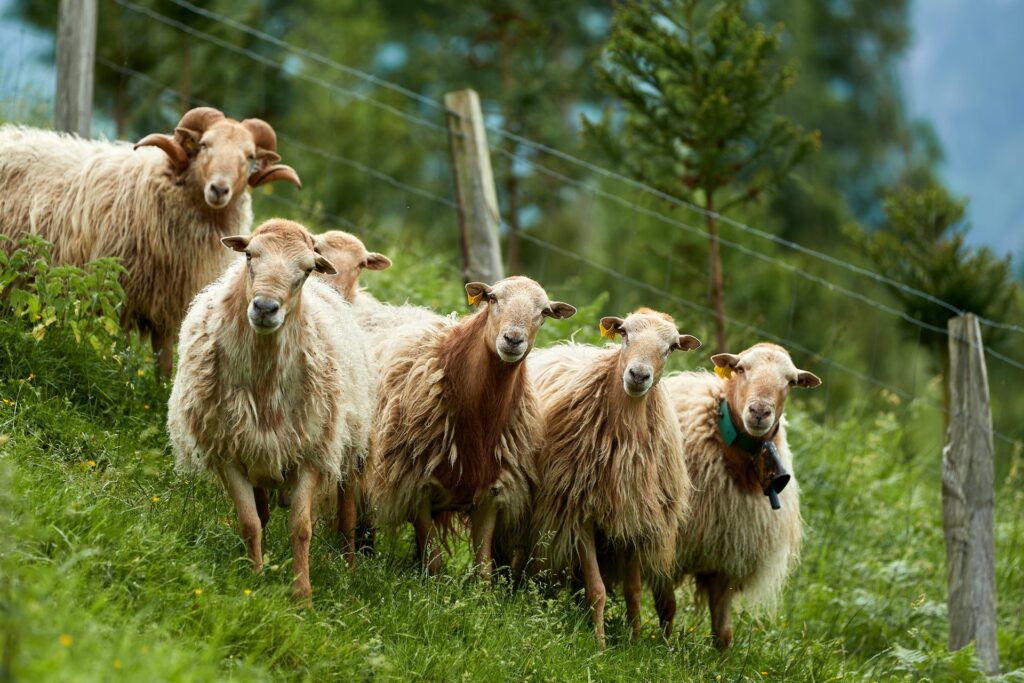

The Sasi Ardi is a breed of sheep which originated in the mountains of the Basque Country, Iparralde and Navarra and is now in danger of being abandoned. Its name means ‘bramble sheep’ in Basque and refers to its way of life and adaptation to the undergrowth and thickets found in mid-mountain areas. The typical products of this breed are zikiro (males about 3 years old) and bildots (lambs between 3 and 5 months old). The flavour of its meat is different from that of other sheep. It is characterised by a marbled taste which is much appreciated by artisan butchers, gourmet restaurants and private consumers.
Want to be kept up to date on Reyno Gourmet’s news, events, competitions and promotions?
Leave us your email and periodically receive our newsletter in your inbox.
Responsible: Navarro Institute of Agro-food Technologies and Infrastructures, SA (INTIA) Purpose: Manage the sending of the requested information and in relation to the activity. Legitimation: Consent of the interested party. Recipients: No data will be transferred to third parties, except legal obligation. Rights: Access, rectify and delete the data, as well as other rights as explained in the additional information. Additional information: https://intiasa.es/es/nota-legal.html